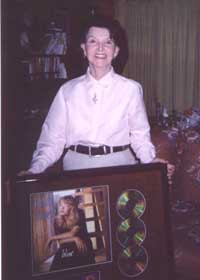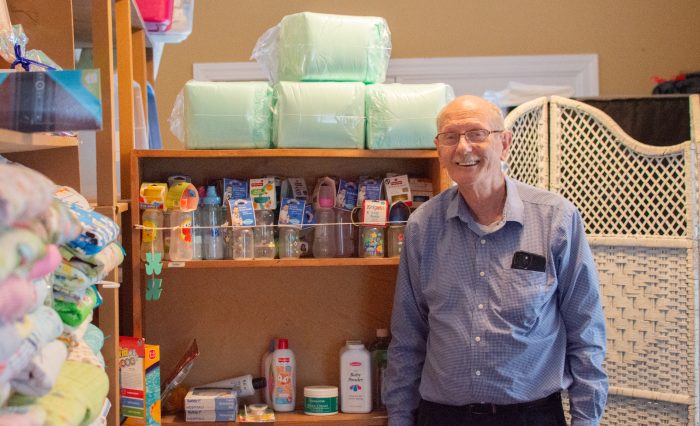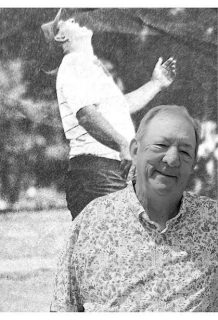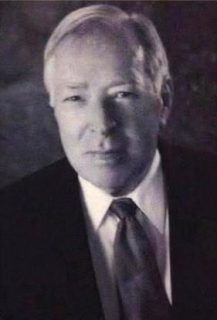Coweta House
Published 12:00 am Wednesday, March 5, 2008

- Coweta House
The art of making music is an uplifting endeavor. The business of making music, however, can be crushing by comparison. Independence on the part of songwriters, as with artists and musicians, can often be a liability to attaining commercial success in the major markets of Nashville, Los Angeles, and New York. But success can be defined, and achieved, on one’s own terms. By that view, independent songwriter Coweta House is quite the success.
House has been writing all her life and has pitched her music to the Nashville market for the last 22 years. In that time, she has written hundreds of songs, and through combining her abilities with preparation and perseverance, she has had numerous songs recorded by artists, including major artists Bobby Vinton and LeAnn Rimes with one multi-million seller, and has won a songwriter of the year honor.
Trending
Coweta House is a charming person who sets her own goals as an independent songwriter. Speaking with House at her Woodbury home which overlooks Green River, one feels it hard to imagine any mansion or fine estate being more suitable for this songwriter. One also discovers from talking with House that she values doing what is creatively best for a given writer, regardless of what music styles and business practices are currently in vogue.
House is a writer of traditional mainstream country — what she calls “corn country” because “it’s as country as corn.” She says right now the folks in Nashville are wanting country music that strongly pop influenced, but Coweta takes the longer view. “You write what you want to write,” she says, “and there’ll be a time when that’ll be what they want [in Nashville].”
As an independent songwriter, House pitches her songs to publishing companies who, if they accept them, pitch the songs to artists or people with access to artists (producers, artist management, etc.). She competes with other independent songwriters and with staff songwriters at the large publishing companies.
In the late 1980s, one of her songs was with Eighteen Enterprises, Lynn Anderson’s parents’ company. At the time, Bobby Vinton was looking to record country material. Eighteen Enterprises hooked Vinton up with House’s song “The Last Rose.” It became an A-side single and was also released on Vinton’s 1989 album Timeless. Vinton did not continue into country music, but according to House he has released “The Last Rose” on a second album and continues to perform it at his Blue Velvet Theater in Branson. Recently, House has learned that “The Last Rose” has been recorded and released in Johannesburg, South Africa; she doesn’t know who the artist is, but she is receiving royalties on the song originating from Johannesburg .
A few years later, House pitched some songs to a songplugger she knew at Buckhorn Music. He particularly liked one, “I’ll Get Even With You,” and said he would work to place it with a name artist. After a time, he called Coweta and told her he had the song lined up with an artist. She asked who it was, and he told her it was a 12-year-old girl that was really burning up Texas. House thought to herself, “Not another little girl!” That girl was LeAnn Rimes, and by the time she was 13, Rimes burst onto the music scene with her 1996 debut album Blue.
The success of Blue has been good to House, even though “I’ll Get Even With You” missed making it off the album as a single. She chuckled, “I stayed on Cloud 9 for two years.” Blue has sold 7 million copies worldwide, and it has been re-released overseas. Rimes’ father told House that “I’ll Get Even With You” is among the most requested songs at her concerts. In addition, House was named 1996 Songwriter of the Year by the Tennessee Songwriters Association International (TSAI) on the strength of “I’ll Get Even With You.”
Trending
There are additional songs of House’s that were recorded by Faron Young and Lynn Anderson but never found their way onto a record. House said there was some slim possibility that her Faron Young cut could find its way onto a Young compilation or box set release containing unreleased material.
There are issues, both philosophical and political, in songwriting for Nashville. For instance, the conventional wisdom holds that a writer with commercial aspirations must co-write, for reasons ranging from “co-writers make for better songs” to “Nashville politically won’t cut a song that isn’t co-written.” House does not advocate either way in general, but for her she prefers to write alone. Part of that is the workings of her own creative process, and part of that lies in having total control over songwriter rights — she avoids squabbles over writing, paying for song demos, rights percentages, and song pitching.
Another issue is “crafting” songs. Coweta prefers not to write the way publishing house staff writers tend to, a way that critics sometimes label “assembly line writing.” This method of writing puts songwriting craft at a premium, but House opts to “write from the heart,” feeling that the more piecemeal approach, while successful for many in Nashville, would make for unsatisfactory music if she employed it.
House has a room set up for songwriting, with a piano, typewriter, tapes, and so forth. Often, though, inspiration comes away from home. “I write my best songs while I’m driving,” she said, because there are too many interruptions at home from people. Sometimes she listens to what’s on radio, but mostly she writes what she feels. She may not write for a couple of months, and then she may write as if a creative backlog had broken loose and write all the time for a few weeks.
House would never suggest to anyone that commercial songwriting is easy, reminding this reporter that only eight percent of Nashville’s professional songwriters make more than $5,000 a year. She states, “The music business is a business. It’s full of politics and full of bull.” Also, it is quite difficult to collect royalties from independent artist releases sold only by the artist and not going through a record distributor. House told of experiences she’s had with such independent releases where the manufacturer, label, and artist made money while she never saw a penny.
For aspiring songwriters, House has a few points of advice. First, creating music needs to be its own reward; going into songwriting simply for the goal of commercial success is setting one’s self up for a fall. House believes that fate has a hand in a commercially successful song; so many factors have to come together — the right song, the right artist, at the right time. She didn’t believe that “I’ll Get Even With You” would really be on LeAnn Rimes’ Blue until she held the CD at a record store. Focus on the artistry of the music, on how it makes the writer and others who hear it feel. Anything to come after that is icing on the cake.
Second, the songwriter should arm him/herself with information and advice on the music business and steadily make contacts. House is a believer in books, workshops (which she continues to participate in), organizations (she belongs to TSAI), and writers nights. The writer, though, needs to take the information and apply it in his/her own way, much like a singer must find his/her own voice and not sound like someone else. Her networking advice is to make contacts, be reliable, and avoid conduct that tarnishes one’s reputation; the friend made today at a writers night, studio, or publishing house may be tomorrow’s decision maker who could give one a break.
Coweta said that if she were younger, she would have followed up more on the success of “I’ll Get Even With You” and gotten more cuts; however, she says “I’m comfortable with what I got.” House says her backlog of unpublished songs are such that she doesn’t have to write more songs to have material to pitch; she can write as she wants and is inspired to. About her songwriting endeavors, House said “I’ve enjoyed every minute of it. When St. Peter comes, I’ll say ‘Wait a minute, I’ve got to find this word!’”
Don Thomason is a writer and musician living in Dunbar. Visit him at www.myspace.com/donthomasonmusic






